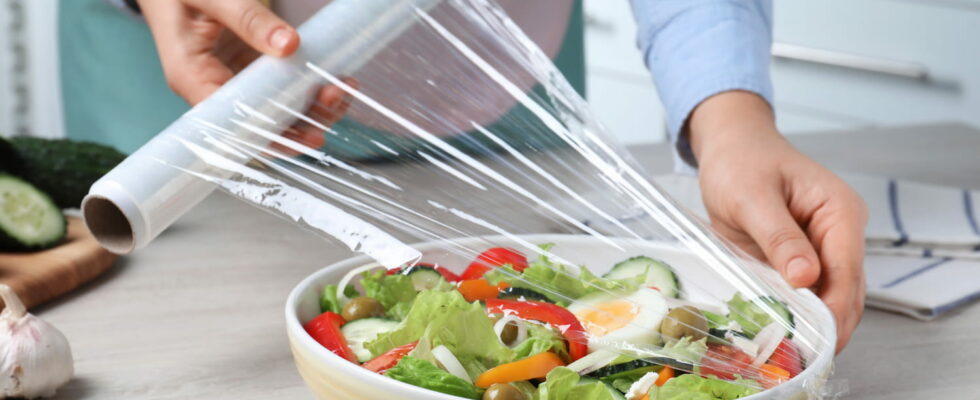Do you get annoyed every time you have to use cling film to protect your food because it gets tangled and sticky? With this simple technique, you will no longer have any difficulty handling it.
Cling film is a must-have in our kitchens. Transparent, stretchable and adhesive, it allows you to keep food away from air and humidity. It is resistant to heat, grease, and can even be used for freezing. However, despite all these advantages, it has its drawbacks. So, who has never cursed a piece of cellophane that tears, sticks to itself, or stubbornly refuses to unroll properly?
Luckily, a simple hack that’s been trending on social media could be a game-changer for anyone struggling with this precious material. It simply involves placing a roll of cling film in the freezer. Once removed, the film becomes rigid, unrolling and cutting it easily, without getting tangled. By getting into the habit of storing your roll in the freezer between uses, you’ll be able to wrap your food effortlessly and without frustration. Try this method now and see how much easier it can be for your daily life.
For even easier handling, lightly dampen your hands before unrolling the film. This additional tip allows you to better control the cellophane and prevent it from sticking to your fingers. If you use cling film often, investing in a dispenser can also be useful. This handy accessory ensures a clean and precise cut, further reducing the risk of tears.
It is also important to note that not all cling film is created equal. Cheaper products are often harder to handle and more likely to tear. Opt for a brand name cling film to ensure better quality and a more comfortable use.
Note, however, that cling film is a synthetic product that is neither compostable nor biodegradable, which poses a real environmental problem. If you are looking to reduce your ecological footprint, know that there are interesting alternatives. Bee Wraps, for example, are fabrics coated with beeswax that can be reused several times. Food caps, often made of coated fabric, are also reusable and washable. Finally, glass or BPA-free plastic storage containers offer a sustainable and practical solution for storing food.
